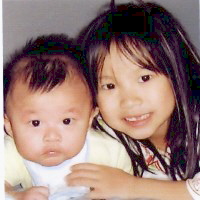 Dịch thuật 1 2 3 4 Georg Lukacs và tờ hợp đồng với Quỉ Found in transalion Power of Poweless Tree of smoke Tiểu thuyết gia tuyệt đối Sự khủng hoảng của con người Bobby Fischer Fugue de mort Kurtz des ténèbres Symetry Linda Lê par Le Magazine Littéraire Pamuk đọc Những con quỉ của Dos Tuyên ngôn độc lập Nỗi Buồn Istanbul Hoà bình nghĩa địa Urge to self_destruction Language of suffering Greene at the Leproserie Malheur Absolu Morrison 10 questions Autofiction HCM by Karnow Bataille_Kafka Crypto- Fascist Karmapa About Chekhov Human Love Gautier Istanbul Những ống khói tầu mệt lả Viết cho ai? Tình đầu Jeune Tolstoi Creator as Critic Ma_Jian interview Ngàn lẻ một đêm Reconstructing Hell nations_exlile exile_patrie 5th Impossibility Trùm Gián Điệp CS Lost Heroes Le grand réveil MC Once on a moonless night Heart Darkness Bilinque Hitler mua dân Đức Lanzmann 1 2 Việt Nam bây giờ Rose of Paracelsus Rimbaud Ma trong nắng Paracelsus_Rose Naipaul: Nobel lecture Miêu Sinh Echoes Name |
Once on
a Moonless Night by Dai
Sijie, translated by
Adriana Hunter 224pp,
Chatto & Windus, 5. £12.99 Dai
Sijie is a wonderful
storyteller. There are not many storytellers writing at present in the
French
language, which makes his speed and intricacy and drama appear even
more
surprising. Once on a Moonless Night is full of tales within tales and
worlds
within worlds, ranging from ancient Chinese empires through communist The
silk has been torn in two
by the teeth of a maddened emperor, Puyi, as he flies on his only
aeroplane
journey to become the Japanese puppet emperor of The
lost language is
Tumchooq, related to Sanskrit. The word means "bird beak", and
describes the shape of the tiny kingdom where it originated, buried by
a
sandstorm in AD817. The narrator discovers a French scholar, Paul
d'Ampère,
author of Notes on Marco Polo's Book of the Wonders of the World, who
deciphered Tumchooq, and took Chinese nationality to be able to pursue
his work.
She also discovers a young vegetable seller, with red hairs among the
black,
whose name is Tumchooq, with whom she falls in love. Tumchooq - a
resourceful
and stoical person - turns out to be the son of Paul d'Ampère, who is
now in a
remote communist prison camp in the mountains, working in a gem mine in
appalling conditions. Each time the son visits, the father teaches him
a few
words more of Tumchooq. The father also converses with a disgraced
scholar in
Tumchooq, playing a kind of imaginary linguistic chess. Everything
in all these
interwoven tales is extreme, from intellectual obsession to the cruelty
of
empresses, from the mountain landscapes to cabbages. The tale opens
with the
narrator doing her first paid translation work, on the film of
Bertolucci's The
Last Emperor. She is beset by hundreds of small Chinese children, all
carrying
violin cases, who have come from the remotest parts of Places
and events are
shocking. There is a scene in which Tumchooq and his friend Ma, as
boys, get
lost in the These
things can be compared
to the lively detail of the prison camp near Ya'an, in the mountains
near There
are several different
kinds of texts within the story - diaries by the narrator and Tumchooq,
reports
of interrogations of Puyi, quoted sections of the biography of the
empress Cixi
- but they all have a quality that I think is part of Sijie's natural
way of
writing. They are so well done, in such a swift and uncompromising way,
that
the reader feels a readerly excitement, even pleasure, as he or she is
swept
along from disaster to disaster. It may be that reader and author and
characters feel the simple astonishment of having survived, of still
being
alive. The end
of the characters'
tales is brought about by their single-minded obsessiveness, and is
both
baffling and inevitable, perhaps. We are given the lost ending of the
tale on
the scroll which began with the traveller on a dark and moonless night.
Unlike
the end of the novel, the end of the tale is beautifully conclusive and
satisfactory.
|